Uncategorized
-
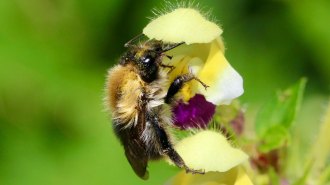 Animals
AnimalsBumblebees lose most of their sense of smell after heat waves
A few hours in high temps reduced the ability of antennae to detect flower scents by 80 percent. That could impact the bees’ ability to find food.
-
 Health & Medicine
Health & Medicine50 years ago, some of plastic’s toxic hazards were exposed
Worker exposure to vinyl chloride became tightly regulated after the chemical was linked with liver cancer. Now, its use may be on the chopping block.
-
 Health & Medicine
Health & MedicineA new drug shows promise for hot flashes due to menopause
Two clinical trials found that the nonhormonal drug elinzanetant eased hot flashes and improved sleep, two common menopause symptoms.
-
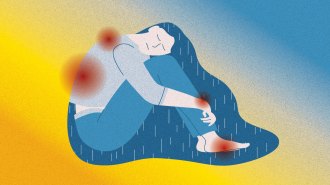 Health & Medicine
Health & MedicineA next-gen pain drug shows promise, but chronic sufferers need more options
A new painkiller nearing approval called suzetrigine may prove to be an opioid alternative. But for many with chronic pain, treatment must go beyond pills.
-
 Cosmology
CosmologyIn an epic cosmology clash, rival scientists begin to find common ground
Different measurements of the cosmic expansion rate disagree. The James Webb telescope could determine whether that disagreement is real.
-
 Physics
PhysicsA nuclear clock prototype hints at ultraprecise timekeeping
Nuclear clocks could rival atomic clocks and allow for new tests of fundamental physics. A new experiment demonstrates all the ingredients needed.
-
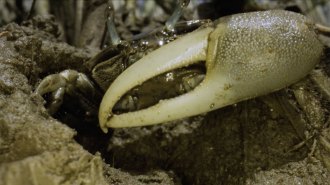 Environment
EnvironmentFiddler crabs are migrating north to cooler waters
The crabs are climate migrants and could be a harbinger of changes to come as more species move in.
By Luke Groskin -
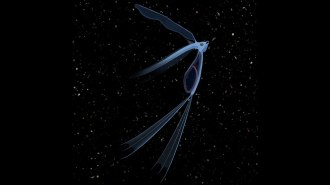 Paleontology
PaleontologyDespite new clues, this ancient fish has stumped scientists for centuries
The 50-million-year-old Pegasus volans isn't closely related to seamoths or oarfish, like some researchers have suggested. But what is it?
-
 Artificial Intelligence
Artificial IntelligenceA new book tackles AI hype – and how to spot it
In AI Snake Oil, two computer scientists set us straight on the power and limits of AI and offer advice for moving forward.
-
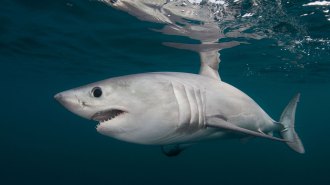 Animals
AnimalsScientists piece together clues in a shark ‘murder mystery’
A missing porbeagle shark was likely killed by a great white. It’s the first known case of adult porbeagles being hunted by a predator, scientists say.
By Jason Bittel -
 Climate
ClimateSummer-like heat is scorching the Southern Hemisphere — in winter
Warmer winters are fast becoming a global phenomenon and can affect everything from the food we grow to the spread of diseases.
-
 Physics
PhysicsMayo is weirdly great for understanding nuclear fusion experiments
Mayonnaise’s texture is perfect for mimicking what a fusion fuel capsule goes through after it’s blasted with lasers.